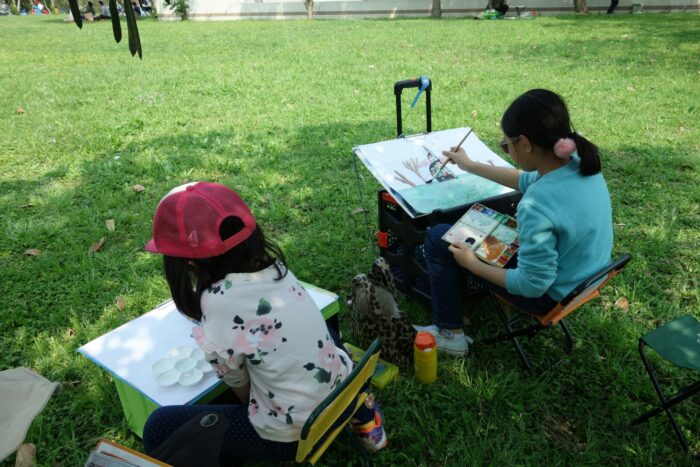Outdoor education is a term used to describe a broad range of activities that may encompass concepts and ideas learned in the classroom. Due to severe budget constraints, major cutbacks have been made to Ontario’s educational sector, noticeably to outdoor education programs. Some programs that have been terminated include multi-credit high school integrated programs in Halton, Bluewater, Trillium Lakelands and Simcoe District School boards, as well as four of the ten existing outdoor education centres run by the Toronto District School Board (TDSB). While the news of these program terminations is quite unfortunate, it is even more disappointing to hear that there could be additional reductions.

Photo by Arthur Tseng on Unsplash.
Outdoor experiential education (OEE) has been an effective learning approach for many years. Some examples of OEE excursions include neighbourhood walks, field trips to selected centres as well as programs including co-operative education and specialist high skills majors. As Liz Kirk’s article mentions, outdoor experiential education does not mean time away from school. It is rather a way to enhance student learning by providing opportunities to make connections between in-class material and reality.
In 2018, The Council of Outdoor Educators of Ontario compiled a summary of benefits of outdoor education. Some of the reasons why OEE should be supported include the following:
- OEE follows the school curriculum – Students that participate in these excursions are able to broaden and deepen their learning. As a result, they may become more engaged and enthusiastic about different topics, as well as improve their language proficiency, critical thinking and STEM skills.
- Character is developed – Due to the highly interactive nature of these programs, significant development of both personal and interpersonal growth is able to occur. Some characteristics that can be further developed include creativity, self-motivation, assertiveness and resilience.
- Social skills are developed – While engaging in OEE, working with other classmates can promote co-operation, effective communication, decision making and problem solving.
- Physical and mental well-being is improved – Research has proven that an increased amount of time spent outdoors can reduce feelings of anxiety and better one’s ability to handle difficult situations.
- Recognition of the environment – OEE allows students to recognize how important our natural surroundings are.
Categorised in: Uncategorized
This post was written by Allison Wong
